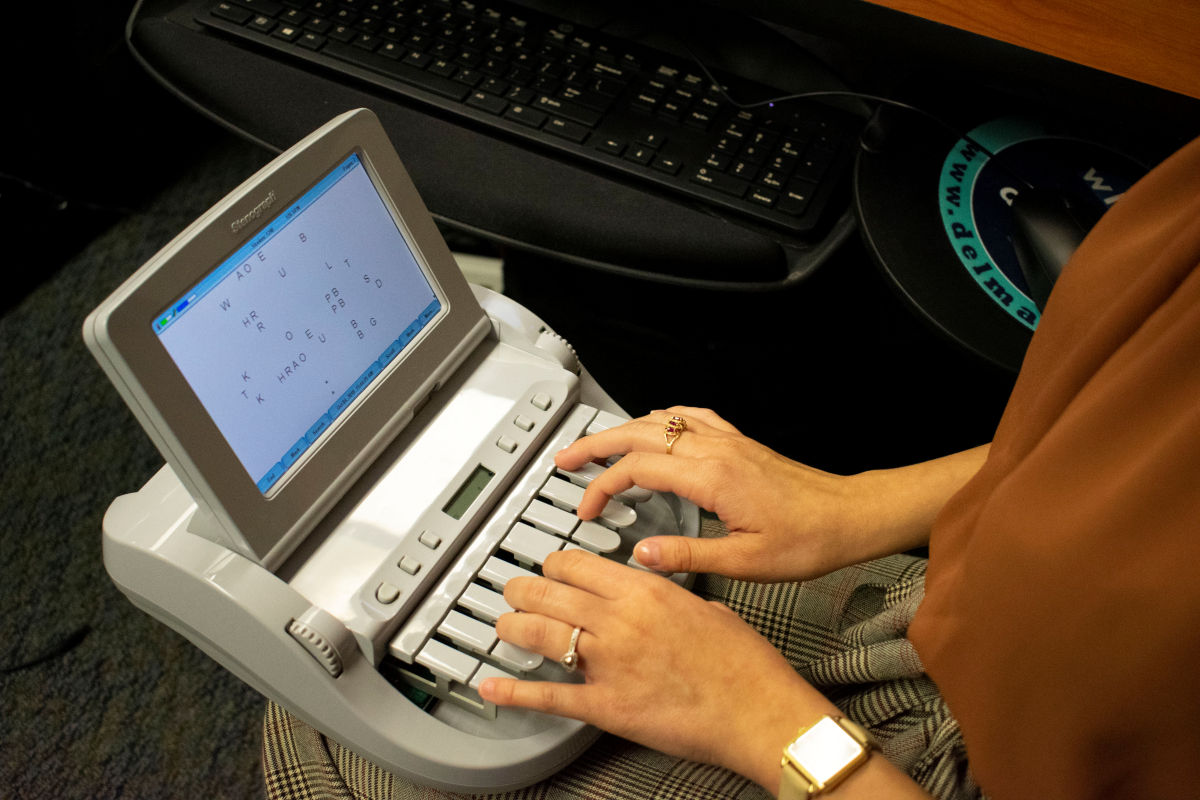How court reporting Supports Word-for-Word Records in Court Cases
How court reporting Supports Word-for-Word Records in Court Cases
Blog Article
Recognizing the Crucial Function of Court Coverage in Legal Procedures
Court reporting is typically overlooked, yet it's necessary in lawful procedures. You may not recognize how court reporters guarantee every word talked is videotaped accurately, affecting choices made by discretionary. Their skills and modern technology play a considerable role in maintaining the honesty of lawful records. However exactly what does the procedure involve, and exactly how has it developed in time? Let's check out the basic functions of court reporting and its relevance in the legal landscape.
The Background of Court Coverage
Court coverage has a rich history that goes back to old people, where scribes made use of numerous methods to record spoken words. The earliest types of shorthand arised in Greece around 400 BC, allowing theorists and politicians to tape speeches swiftly. As you move via history, you'll discover that the Romans embraced comparable strategies, refining them to document lawful proceedings. By the 16th century, modern-day shorthand systems started to materialize, making it possible for stenotype reporter to generate exact transcripts successfully.
In the 19th century, the development of the typewriter changed the occupation, making it much easier to produce legible documents. The introduction of steno machines in the 20th century additionally advanced court reporting, permitting real-time transcription throughout tests. Today, stenotype reporter play a significant role in lawful process, guaranteeing that every word spoken in the courtroom is precisely documented. Recognizing this history highlights the relevance of court reporting in keeping a fair legal system.
The Skills Needed for Court Reporters
As a court press reporter, you need strong typing skills to maintain up with the hectic dialogue of legal procedures. Your ability to pay attention attentively is simply as important, making sure every word is recorded accurately. Understanding these abilities is key to providing specific and trusted transcripts.
Efficient Inputting Capabilities

Strong Paying Attention Abilities
Strong listening abilities are essential for court press reporters, as they need to accurately catch talked words in genuine time. You need to focus intently on the dialogue, getting nuances, tone, and context to guarantee every information is recorded properly. This ability assists you differentiate between audio speakers, comprehend lawful lingo, and adhere to complicated conversations. It's not just regarding listening to words; it's regarding understanding and translating them swiftly. You'll usually deal with various accents and speech patterns, so flexibility is crucial. Exercising active listening methods can enhance your capabilities; as an example, summarizing what you have actually heard after conversations can enhance your abilities. Eventually, strong paying attention abilities make you a crucial property in lawful procedures, making certain quality and accuracy in the court document.
The Modern Technology Behind Court Coverage
In the domain of lawful procedures, technology plays a necessary duty in enhancing the precision and performance of court reporting. You're likely aware of the traditional stenotype maker, however modern stenotype reporter currently make use of innovative software that integrates with these makers, allowing real-time transcription. This means you can have immediate access to the records as the proceedings unfold.
Digital audio recording is an additional technical improvement that's obtaining grip. It records every talked word, guaranteeing nothing is missed. Some reporters utilize voice acknowledgment software application, which can assist improve the transcription procedure, though it still needs human oversight for precision.
In addition, cloud-based storage space enables simple access and sharing of transcripts, enhancing partnership amongst lawful groups. By leveraging these technologies, stenotype reporter can supply high-quality, timely documents that are crucial for the legal process. Embracing this tech not only enhances your understanding however also assures reliability in lawful documentation.
The Court Coverage Process

As lawful procedures unravel, the court reporting procedure ends up being essential in catching every detail precisely. You'll discover that a stenotype reporter plays a vital function by transcribing spoken words into composed text in real-time. When you enter the court, the press reporter is currently prepared, furnished with specialized devices like stenographic machines and audio recording tools.
During the process, the press reporter pays attention diligently, inputting out everything said, from witness statements to attorneys' disagreements. You might discover them pausing sometimes to ensure clearness or to ask for a repeat if something had not been clear. After the session, the reporter reviews the transcript, making essential edits for readability.
This entire process not just assures a complete record but also prepares you for future referral throughout charms or case reviews. In visite site the hectic atmosphere of a court, the court reporting procedure is essential for preserving an exact account of occasions.
The Importance of Accuracy in Transcripts
While a court press reporter's key duty is to transcribe spoken words, the accuracy of these records is crucial for the stability of lawful procedures. When you're associated with a case, you depend on specific paperwork to comprehend the events and debates provided. Any errors in transcription can cause misunderstandings, misconceptions, and even wrongful judgments.
Accurate transcripts guarantee that every detail is recorded, providing a dependable document for additional reading judges, lawyers, and juries. This degree of detail is crucial throughout charms or when referencing previous testaments. If a records consists of inaccuracies, it can weaken the whole legal procedure, possibly influencing results.
In addition, accurate transcripts support the civil liberties of all celebrations included, promoting justness and openness. Whether you're a lawyer preparing for trial or a witness reflecting on your statement, you can trust that the court press reporter's skill in precision plays a significant role in your situation's success.
The Duty of Court Reporters in Different Legal Setups
Court press reporters play a necessary duty in numerous legal settings, from trials to depositions and lawful hearings. You'll find that their work warranties every talked word is properly recorded, which is essential for the legal process. Comprehending how their obligations vary throughout these environments can highlight their effect on the justice system.
Court Reporters in Tests
In any kind of lawful test, you'll locate that court press reporters play a vital function in catching the process with accuracy and accuracy. Court press reporters need to preserve emphasis and rate, often using specific equipment to maintain up with fast-paced discussion. Ultimately, court reporters help support the justice system, making sure transparency and accountability throughout tests.
Depositions and Legal Hearings
Beyond trials, court reporters likewise play a necessary function in depositions and lawful hearings. Court reporters provide real-time transcription solutions, enabling lawyers to adhere to along and address any concerns right away. In short, court reporters are vital in preserving the integrity and clarity of the lawful record in depositions and hearings.
Future Patterns in Court Coverage
As technology remains to develop, the future of court reporting assures to be shaped by ingenious tools and techniques that enhance precision and efficiency. You'll likely see increased use expert system and real-time transcription services, enhancing the reporting process. These advancements can aid you accessibility transcripts much faster, which can be important for your legal techniques.
In addition, integrating video conferencing and remote coverage will certainly come to be a lot more typical, permitting you to attach with court reporters from anywhere (court reporting). This flexibility can make depositions and hearings much more accessible, conserving both time and sources
You'll also observe a focus on digital recordkeeping, which simplifies the storage space and retrieval of records. With cloud-based remedies, you'll have the capacity to share files firmly and team up with your lawful group in real-time.
Frequently Asked Concerns
What Is the Typical Income of a Stenotype Reporter?
The ordinary salary of a stenotype reporter visit our website differs by area and experience, however you can anticipate it to range from around $50,000 to $80,000 yearly. Many factors affect this revenue, consisting of field of expertise and demand.
Exactly how Do I Come To Be a Licensed Court Reporter?
To become a qualified court reporter, you'll require to complete a court reporting program, pass a qualification examination, and gain useful experience. It's important to stay upgraded on sector requirements and continuing education requirements.
What Types of Instances Do Court Reporters Cover?
Court press reporters cover different cases, including criminal tests, civil suits, depositions, and mediation hearings. You'll locate them recording whatever, ensuring accurate documents for courts, attorneys, and parties entailed, capturing every word talked in legal setups.
Are Court Reporters Required to Have a Level?
Yes, stenotype reporter typically need a level or qualification in court reporting. Lots of programs use specialized training, ensuring you get the abilities necessary for accurate transcription and legal paperwork in numerous settings.
Can Court Reporters Work From Another Location?

Report this page